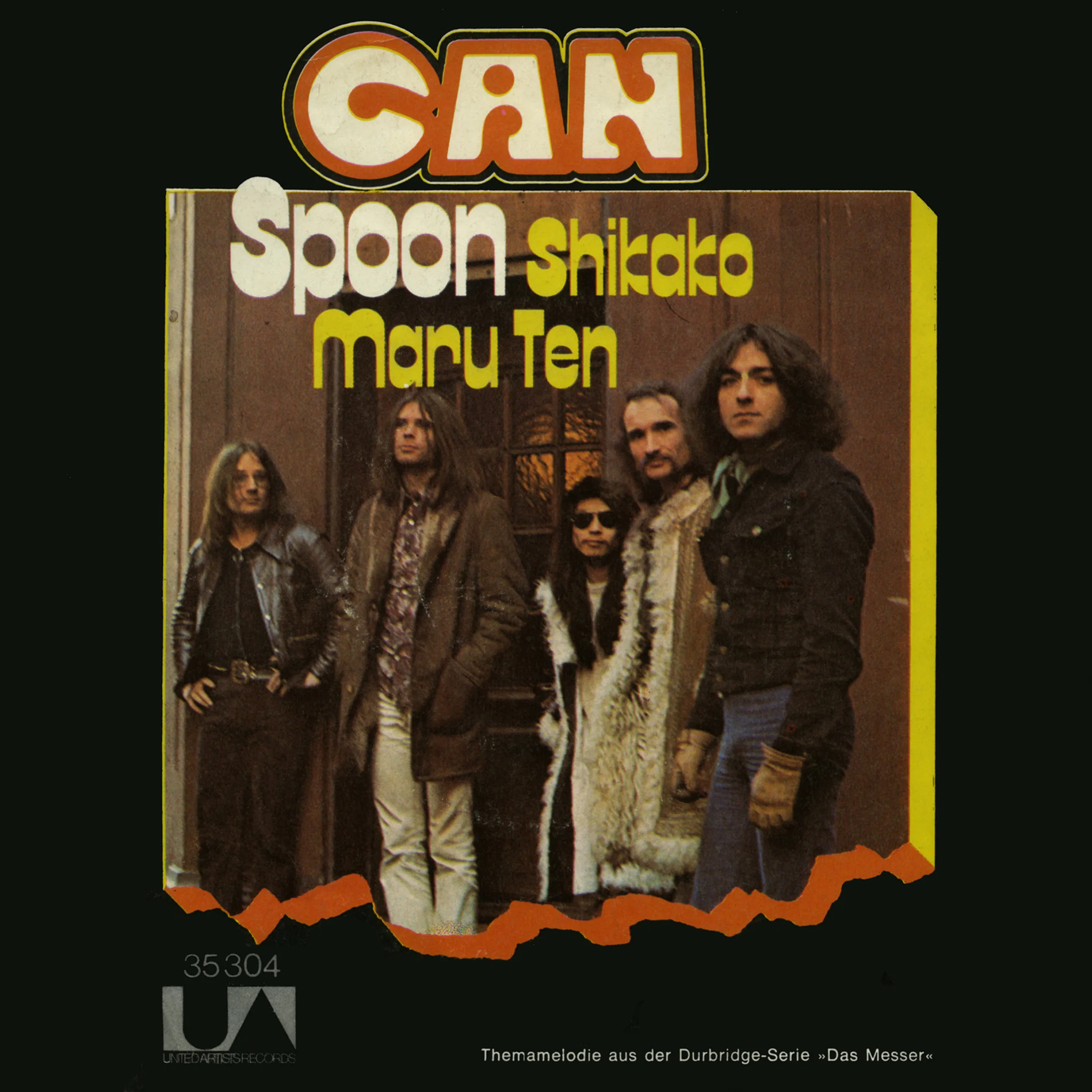
Can
Spoon/Shikako Maru Ten

The A‑side “Spoon” was the closing track to Can’s 1972 album, “Ege Bamyasi.” Outside of Sly & The Family Stone’s “Family Affair,” it’s difficult to think of another hit single from the early seventies incorporating such a prominent drum machine rhythm. But in West Germany, it struck enough of a nerve in the mainstream to become a Top 30 single selling 200,000 copies.
This most unlikely candidate of hit parade action starts up with a slow, steady percolating drum machine rhythm that continues unabated for the duration of the track as a sharp keyboard spiral, half-played drum rolls, echoed Farfisa ripples, cluttered attic percussives and sparsely played bass, acoustic and electric guitars dance around it. It’s total chaos reared in by group ESP alone. Cymbals sound off in the background ranging from tapped to lightly smashed as Damo Suzuki’s gently whispered and echoed vocal incantations are set upon an altar of unfailing rhythms, gently shifting cadences and impeccably placed accents that wind up reinforcing the already grounded and immovable rhythm. Everything falls away in the middle section to lay bare the drum machine and a few stray notes of either guitar or keyboards, only to return to its main theme of juxtaposed simplicity.
Appearing on the B‑side is “Shikako Maru Ten,” the other Damo-era Can track never released on album until the posthumous “Cannibalism 2” compilation. It bears more than passing similarities to “One More Night” off “Ege Bamyasi” with the same small, spooky and unobtrusive Farfisa melodies of Irmin Schmidt and the exact same rhythm intact. But in contrast, “Shikako Maru Ten” is far less dank and late night in feel. In fact, it could be the 6AM version of “One More Night” as congas beat alongside the dominant, rattling brush snarework of Jaki Liebezeit. Two separate vocal phrases issue forth from Damo — one in English and the other the Japanese title — as Karoli’s quietly snazzy guitar picking and Czukay’s bass melodies of supreme easing-ness just keep rolling on. Again and again, Can convey meaning that Damo’s vocals (alternatively English, Japanese or just plain hitching a ride with the groove with heartfelt adlibbing) just barely hint at as they always seem to just escape the boundaries of complete comprehension. But in Can, the musical backing is always in the process of making it what it has already become — a multilateral rhythmic approach with a full and open head of steam of consciousness. And their musical centre was seemingly never in the same place twice. If it wasn’t located immediately, it would then be felt out by every member through their ever-shifting musically space either intuitively or by unyielding repetition. And despite what musical space or rhythmic orbit they were currently operating within, the centre would often be determined and pinpointed with frightening accuracy.
Not your typical hit single by any definition. But then again, Can with Damo were not exactly typical of anything. Even of themselves.
